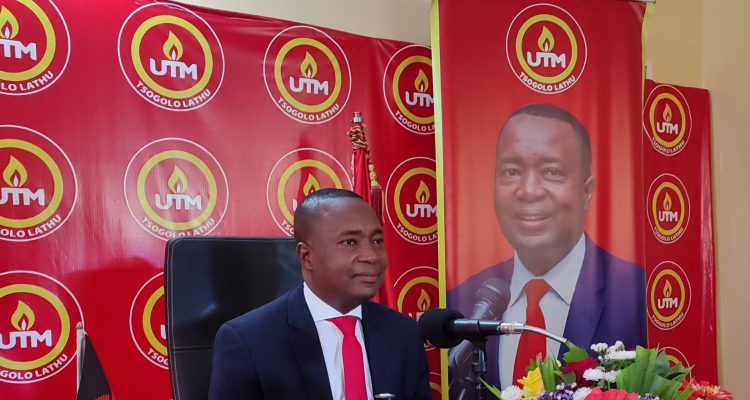
The rivalry between Malawi’s ruling Malawi Congress Party (MCP) and the United Transformation Movement (UTM) has taken a dramatic turn, with the MCP media team allegedly launching a coordinated campaign against Dalitso Kabambe (DK), the newly elected UTM president.
DK’s rise to prominence has shaken Malawi’s political landscape, prompting aggressive strategies from the MCP to discredit him.
Dalitso Kabambe’s leadership of the UTM has rejuvenated the party, positioning it as a formidable competitor to the MCP. However, his ascension appears to have triggered a wave of negative rhetoric from MCP-aligned media platforms.
The campaign, characterized by coordinated social media attacks, strategically placed opinion pieces, and subtle jabs in public statements, seeks to undermine DK’s credibility.
MCP insiders suggest the media team’s actions are fueled by fears of DK consolidating opposition forces ahead of the 2025 general elections.
Critics argue that the MCP is using its media machinery not to promote its achievements but to tarnish DK’s reputation. This approach risks alienating Malawians who are increasingly frustrated with unfulfilled promises and economic hardships under the current administration.
DK’s political trajectory has been swift and strategic. As a former Reserve Bank of Malawi governor, he built a reputation as a competent technocrat. Now, as UTM president, he represents a fresh alternative to the status quo.
The MCP’s media campaign likely stems from several factors:
Firstly, his technocratic background appeals to Malawians seeking solutions to the country’s economic woes.
Secondly, under DK’s leadership, UTM is attracting members disillusioned with the MCP and other parties.
Thirdly, DK’s potential to unite opposition parties poses a serious challenge to MCP’s grip on power.
While the MCP media team’s attacks may damage DK’s reputation among some voters, the campaign could also backfire. Many Malawians view such tactics as a sign of desperation and political insecurity. Instead of focusing on policy achievements, the MCP risks being seen as more concerned with silencing opposition voices than addressing national challenges.
Moreover, these attacks could strengthen DK’s support base. Voters often rally behind leaders perceived as underdogs facing unfair treatment. MCP’s aggressive tactics could inadvertently solidify DK’s position as a credible alternative to the ruling party.
This media war underscores the growing tension between the MCP and UTM, two parties that once collaborated under the Tonse Alliance. The alliance’s collapse has transformed former allies into fierce rivals, with DK’s rise further intensifying the competition.
The battle between the two parties highlights deeper issues within Malawi’s political landscape, including the fragility of alliances and the lack of ideological cohesion. As the 2025 elections approach, the MCP and UTM must decide whether to focus on personal rivalries or prioritize policies that resonate with Malawians.
Recommendations for the MCP:
Instead of attacking DK, the MCP should focus on delivering tangible results to improve Malawians’ lives.
The media team must avoid divisive rhetoric and adopt a more constructive approach to addressing opposition challenges.
For the UTM:
DK can use the MCP’s attacks to position himself as a victim of political bullying, highlighting his vision for Malawi as an alternative to the MCP’s governance.
The UTM must avoid being drawn into personal attacks and instead focus on offering concrete solutions to national problems.
In conclusion, the MCP media team’s alleged campaign against Dalitso Kabambe reflects the high stakes of Malawi’s political contest. However, such tactics risk alienating voters and detracting from the party’s achievements. As DK continues to gain traction, the MCP and UTM must pivot towards issue-based politics to secure their place in Malawi’s evolving political landscape.














